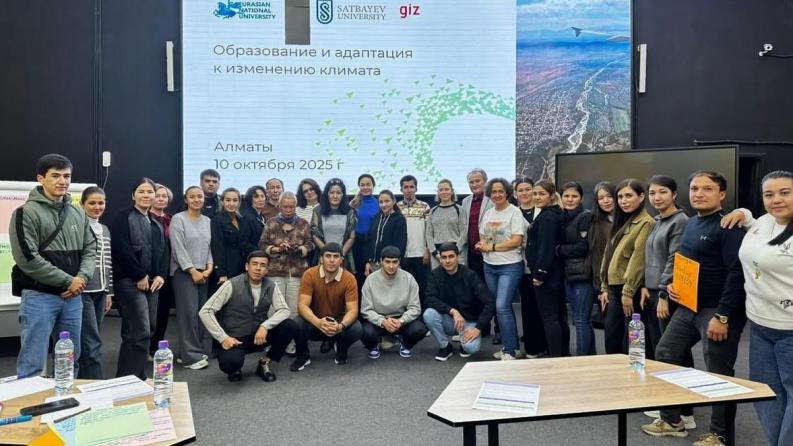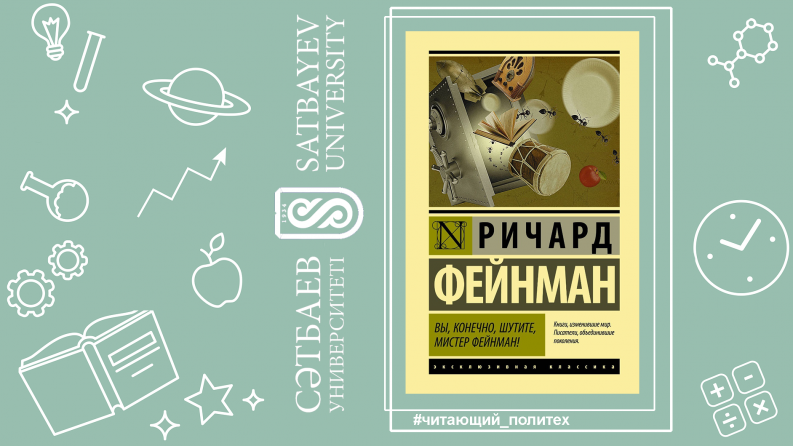Satbayev University as a Platform for Discussing Climate-Related Water Threats

Satbayev University hosted the seminar “Climate-Related Water Threats: Droughts, Floods, and Heat Waves”, where scientists and students from Tajikistan and Kazakhstan assessed climate risks and developed solutions to potential challenges through an open dialogue and business game format. The facilitators were Natalia Bachinskaya and Maria Stepanova.
During the workshop, participants identified key risks relevant to Central Asia: droughts and floods threatening food security and urban infrastructure, as well as transboundary water risks affecting relations between the countries of the region.
The participants presented ideas aimed at reducing these risks and supporting the sustainable development of the region. Among the proposals were: creating a system for separate collection and recycling of organic waste, establishing a gene bank of rare Central Asian plants, introducing water reuse technologies at ecotourism facilities, and launching an international research project to study the Darvaza crater in Turkmenistan. The seminar reaffirmed Satbayev University’s leading role in promoting climate education and developing expert solutions for a sustainable future in the region.
“We see the university as a space where ideas and joint projects with international organizations are born. This enables our students and faculty to contribute to sustainable development and address global environmental challenges,” – noted Aliya Zhaxalykova, Head of the SDG Office at Satbayev University.
The results of the seminar will be used to prepare recommendations for Kazakhstan’s National Climate Change Adaptation Plan. The final online seminar of the program will take place on October 16, where participants will finalize their project proposals and discuss possibilities for their integration.
The seminar was held as part of the international educational program “Education and Adaptation to Climate Change”, launched under the global IKI DIAPOL-CE project with the support of GIZ, in collaboration with L.N. Gumilyov Eurasian National University and Satbayev University.










